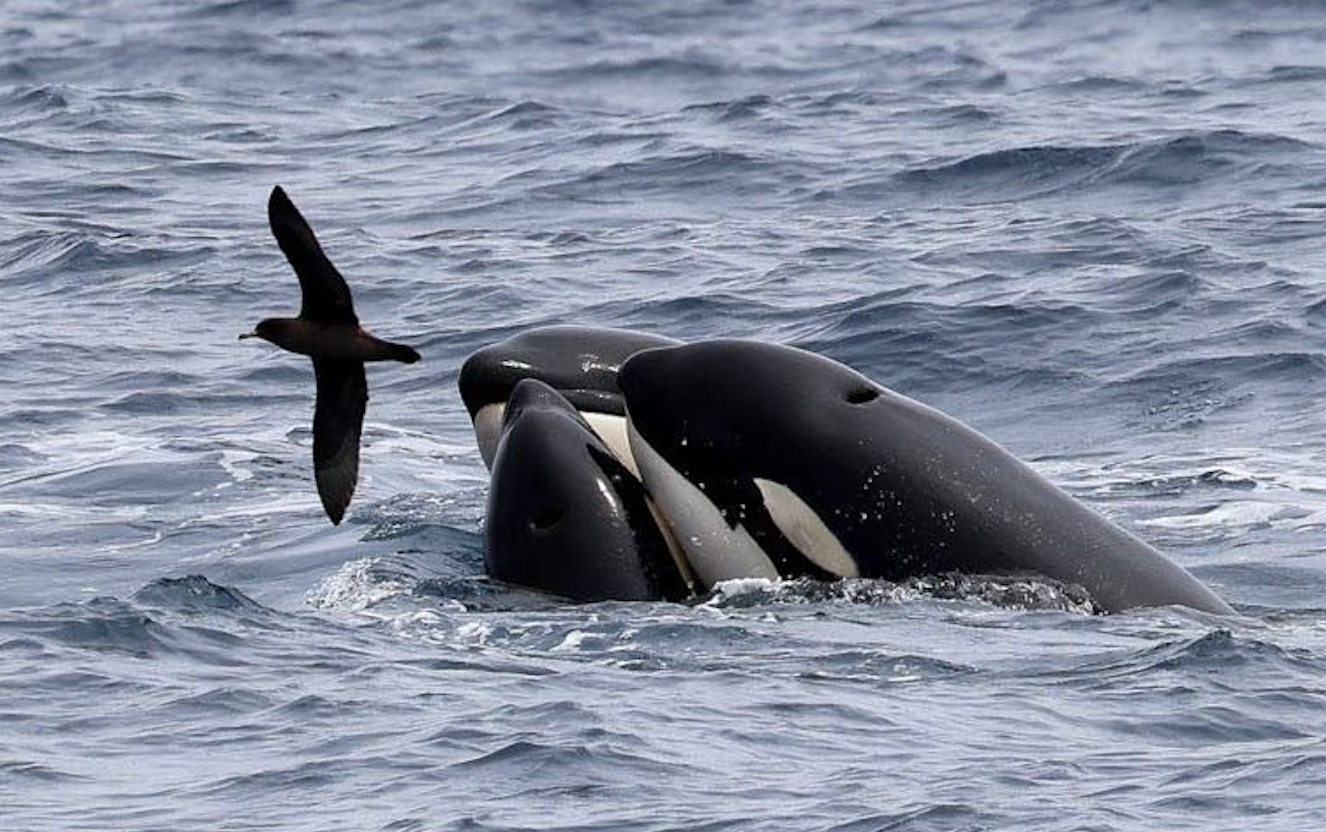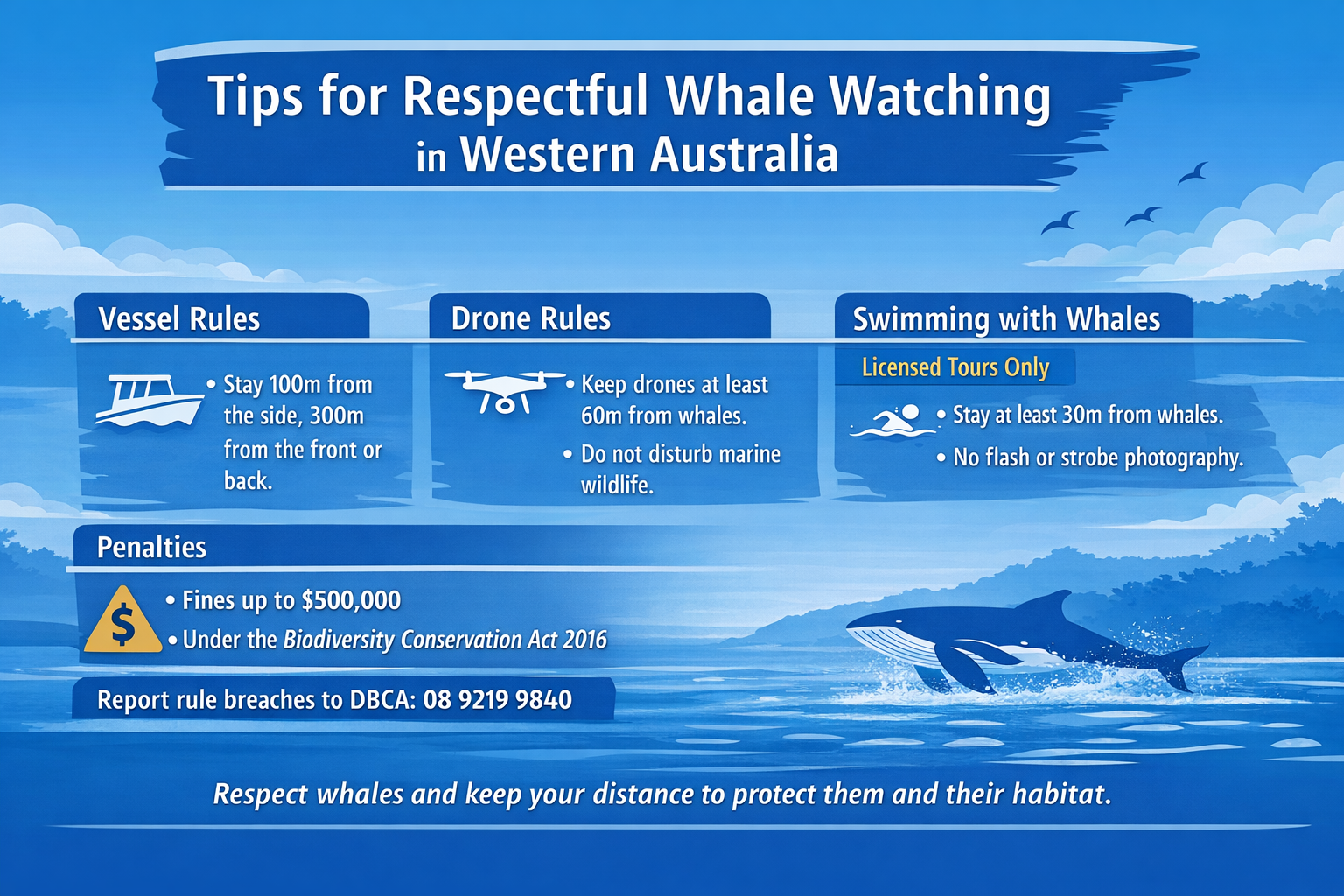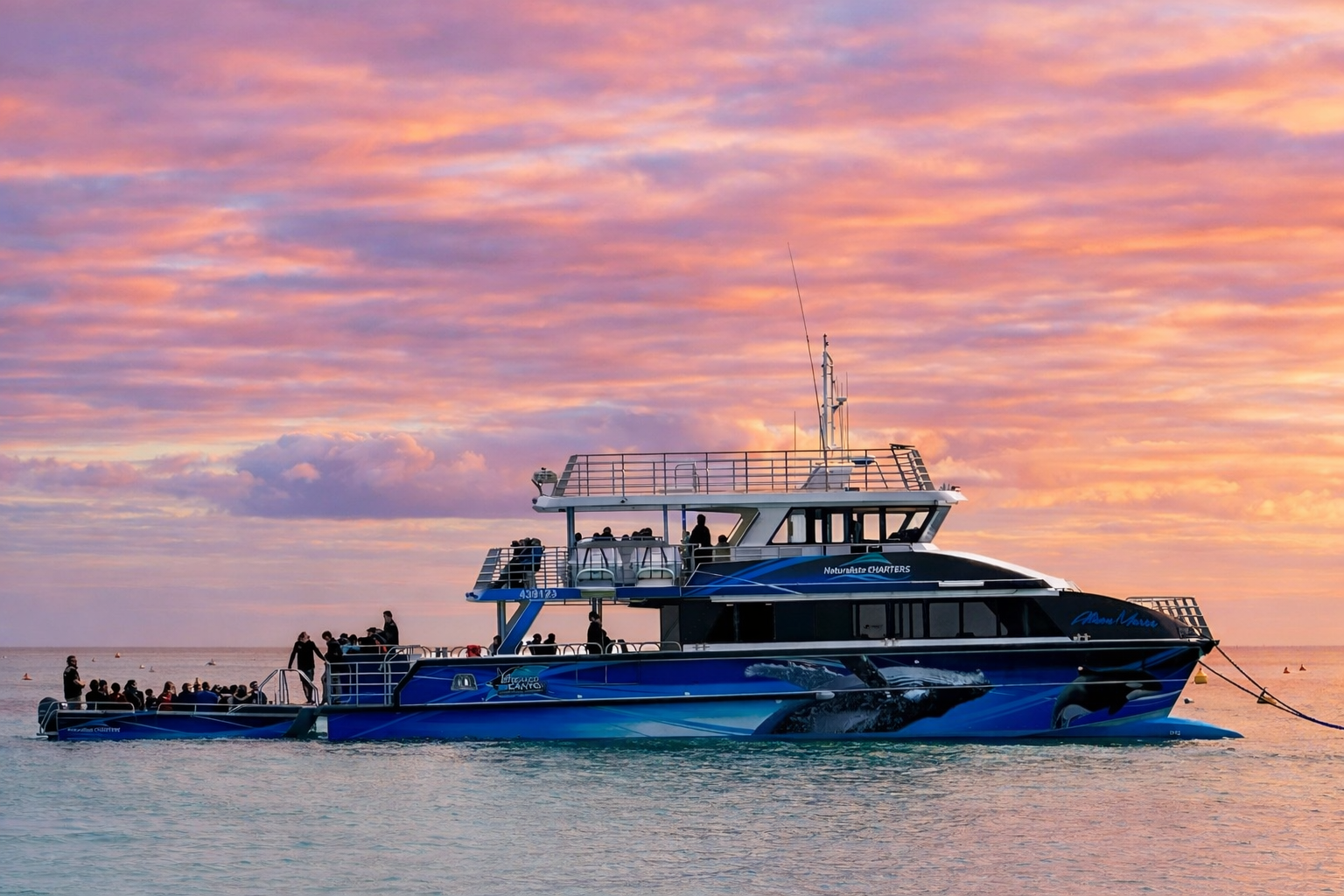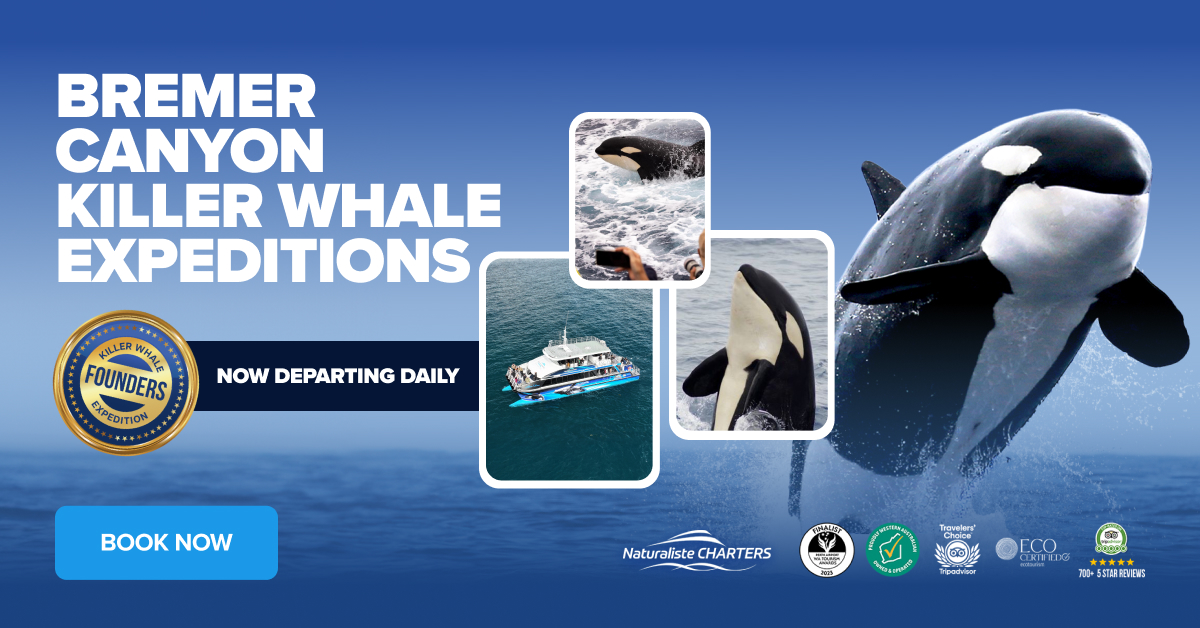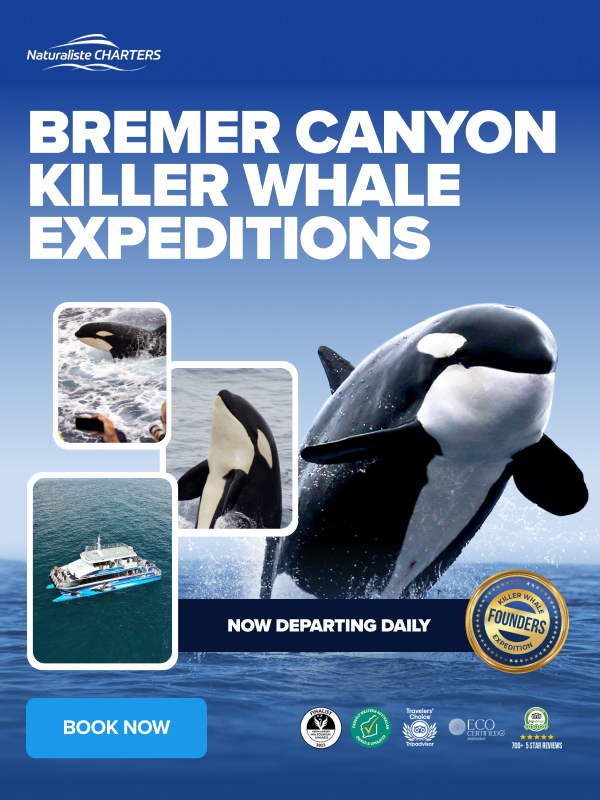Along the wild south coast of Western Australia lies a place few ever forget — Bremer Bay. Between December and April, this remote town transforms into one of the planet’s most extraordinary marine theatres. Here, hundreds of orcas, or killer whales, gather to feed, socialise, and thrive. Join Naturaliste Charters on our Bremer Canyon Killer Whale Expeditions and witness the thrilling intersection of science, discovery, and adventure.
The orcas of Bremer Canyon
The Bremer Bay orcas are unlike any other population on Earth. These apex predators are highly intelligent, social, and cooperative hunters. Their presence each summer in the deep submarine canyon, around 70 km offshore, continues to fascinate scientists. The orcas are drawn by nutrient-rich upwellings that sustain large prey populations, from squid to beaked whales.
Marine researchers working alongside Naturaliste Charters collect valuable data during expeditions, tracking the behaviour, pod structures, and feeding strategies of these remarkable animals. Each sighting adds another piece to the puzzle of how killer whales adapt to their changing ocean environment.
Where science meets exploration
Every expedition into the Bremer Canyon is guided by experience and curiosity. Passengers are accompanied by marine biologists who share real-time insights on the ecosystem and its inhabitants. You will learn how orcas communicate, coordinate hunts, and care for young within their tight-knit pods.
Beyond the whales, this offshore environment teems with life. Giant squid, oceanic sunfish, long-finned pilot whales, and sperm whales are all regular visitors. Sea birds soar overhead, and dolphins surf the bow waves. Each journey delivers a raw, unscripted connection to nature — and a front-row seat to living science.
Understanding the Bremer system
Beneath the waves lies the key to this abundance. The Bremer Sub-Basin funnels nutrient-dense water from the deep ocean to the surface. This upwelling fuels plankton blooms that attract baitfish, tuna, and pelagic species — forming the base of a thriving food web. In turn, orcas arrive to feed at the top of that chain.
Ongoing research by universities and conservation programs, supported by tourism partnerships like Naturaliste Charters, helps scientists monitor population trends and potential climate influences. This collaboration shows that responsible ecotourism and marine science can work hand in hand to protect Australia’s ocean giants.
The ultimate whale watching adventure
Unlike coastal whale watching, a Bremer Bay Orca Tour is a true expedition. Departing early from Bremer Bay Boat Harbour, the journey to the canyon is a scenic voyage through cobalt waters in the southern ocean off Western Australia’s deep south east. As you approach the edge of the continental shelf, anticipation builds — every shadow or blow on the horizon could mark your first encounter.
Then it happens. A dorsal fin slices through the swell, followed by another. Suddenly, a pod of killer whales surrounds the vessel, gliding effortlessly alongside or surging past in pursuit of prey. The energy, intelligence, and beauty of these encounters never fail to inspire awe.
Conservation through connection
When people experience the power of orcas firsthand, they understand why conservation matters. Naturaliste Charters works closely with marine researchers, environmental organisations, and universities to ensure that each expedition contributes valuable data for long-term monitoring. By joining a Bremer Bay orca tour, guests become part of this ongoing effort to understand and protect the Southern Ocean’s most complex ecosystem.
Plan your Bremer Bay orca experience
The Bremer Canyon Killer Whale Expedition Season begins each December, when orcas return to feed and socialise through to April. Daily tours depart from Bremer Bay Boat Harbour on board Alison Maree, a purpose-built catamaran designed for comfort and stability offshore.
Book your expedition with Naturaliste Charters and join Western Australia’s original and most experienced orca operators. Witness science in action, feel the spray of the Southern Ocean, and meet the world’s most powerful predator in its natural domain.
References
-
Whales and Climate Program – whalesandclimate.org
-
NOAA Fisheries – Orca Ecology and Behaviour
-
Project ORCA (Australia) – Bremer Canyon Research Initiative
-
CSIRO Marine Research – Bremer Sub-Basin Oceanography

